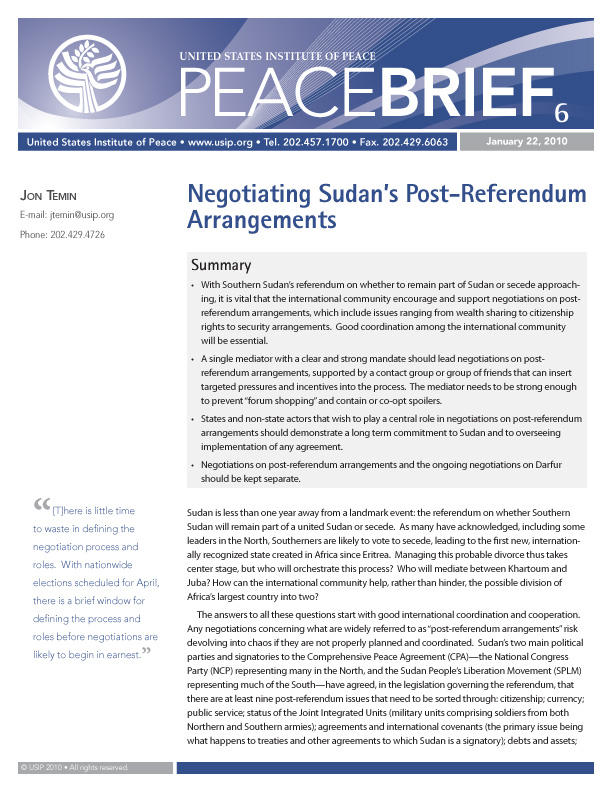Negotiating Sudan's Post-Referendum Arrangements
With less than a year from Sudan’s key referendum on whether the South should secede, USIP considers how the international community can best manage the post-referendum process.

Summary
- With Southern Sudan’s referendum on whether to remain part of Sudan or secede approaching, it is vital that the international community encourage and support negotiations on postreferendum arrangements, which include issues ranging from wealth sharing to citizenship rights to security arrangements. Good coordination among the international community will be essential.
- A single mediator with a clear and strong mandate should lead negotiations on postreferendum arrangements, supported by a contact group or group of friends that can insert targeted pressures and incentives into the process. The mediator needs to be strong enough to prevent "forum shopping" and contain or co-opt spoilers.
- States and non-state actors that wish to play a central role in negotiations on post-referendum arrangements should demonstrate a long term commitment to Sudan and to overseeing implementation of any agreement.
- Negotiations on post-referendum arrangements and the ongoing negotiations on Darfur should be kept separate.
About This Brief
This Peace Brief was written by Jon Temin, USIP’s Sudan Program Officer, and is based on meetings in Khartoum, Juba, Washington and elsewhere between August 2009 and January 2010.



